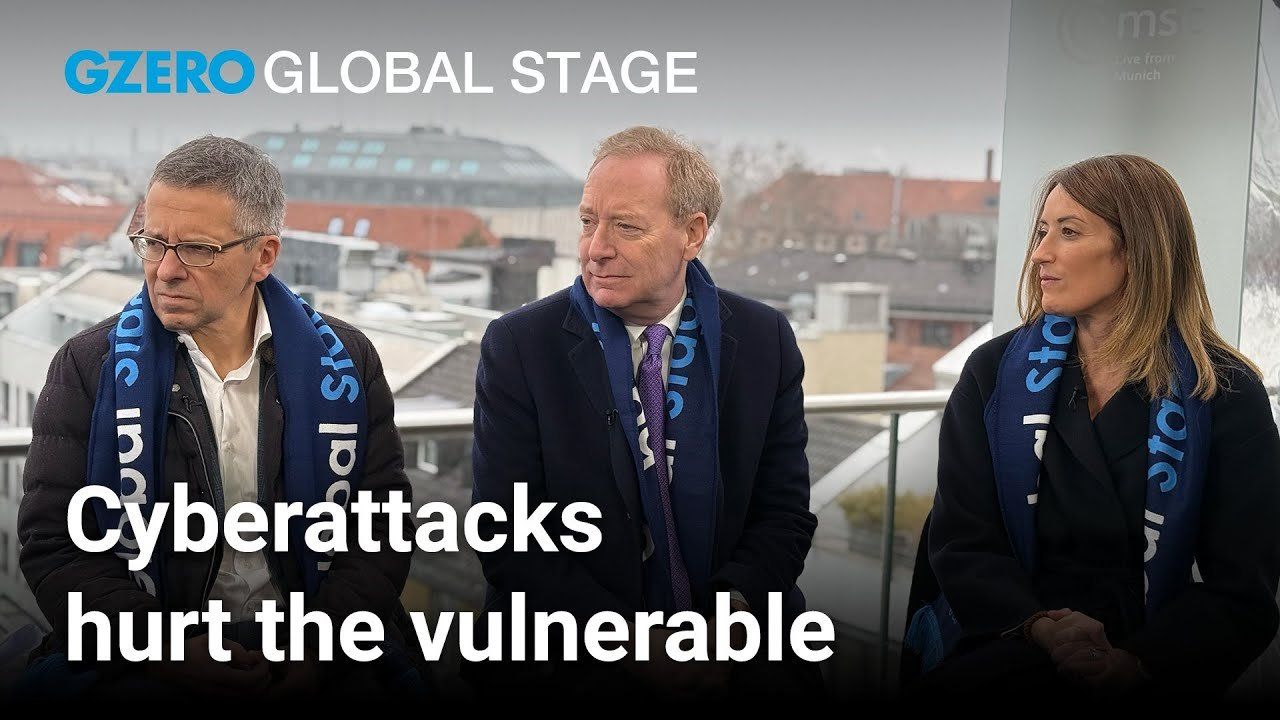Munich Security Conference
The growing cyber threat: Ransomware, China, and state-sponsored attacks

- YouTube

"Ransomware attacks surged 252% last year—hospitals, schools, and local governments are paying the price," said Brad Smith, Microsoft vice chair and president, during a Global Stage discussion at the 2025 Munich Security Conference.
Smith highlighted the evolving cybersecurity threats in 2025. While defenses have improved, China’s recent Salt Typhoon attack exposed vulnerabilities in US telecom networks, and ransomware has exploded—with over half of payments flowing to Russia and Iran. Smith warns that some of these attacks are state-sponsored or state-tolerated, calling for greater international collaboration to counter them.
GZERO World heads to the World Economic Forum in Davos, where Ian Bremmer lookst at how President Trump’s second term is rattling Europe, reshaping both transatlantic relations and the global economy, with Finland’s President Alexander Stubb and the IMF’s Kristalina Georgieva.
Think you know what's going on around the world? Here's your chance to prove it.
How widely is AI actually being used, and where is adoption falling behind? Speaking at the 2026 World Economic Forum in Davos, Brad Smith, Vice Chair and President of Microsoft, outlined how AI adoption can be measured through what he calls a “diffusion index.”
U.S. President Donald Trump holds a bilateral meeting with NATO Secretary General Mark Rutte at the World Economic Forum (WEF) in Davos, Switzerland, January 21, 2026.
After saying numerous times that he would only accept a deal that puts Greenland under US control, President Donald Trump emerged from his meeting with NATO Secretary General Mark Rutte singing a different tune.